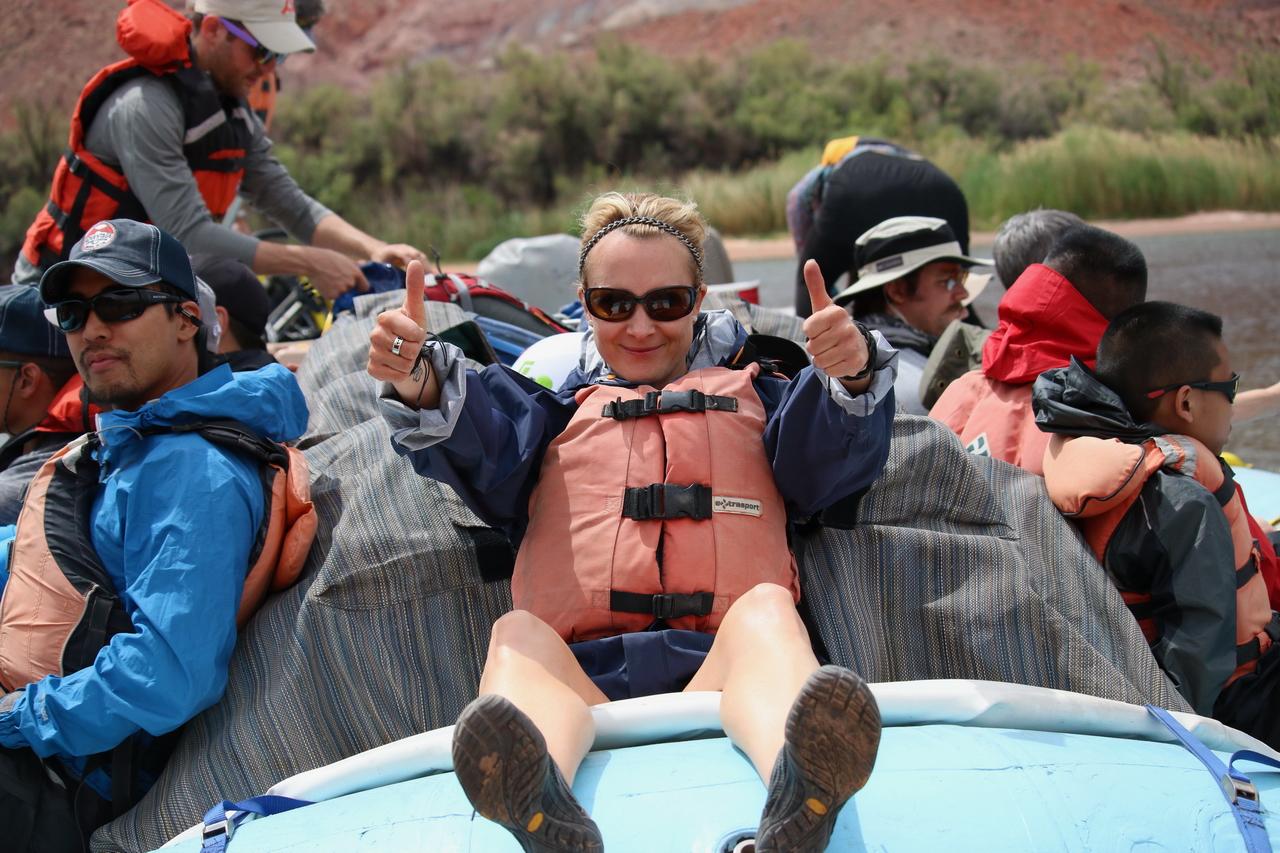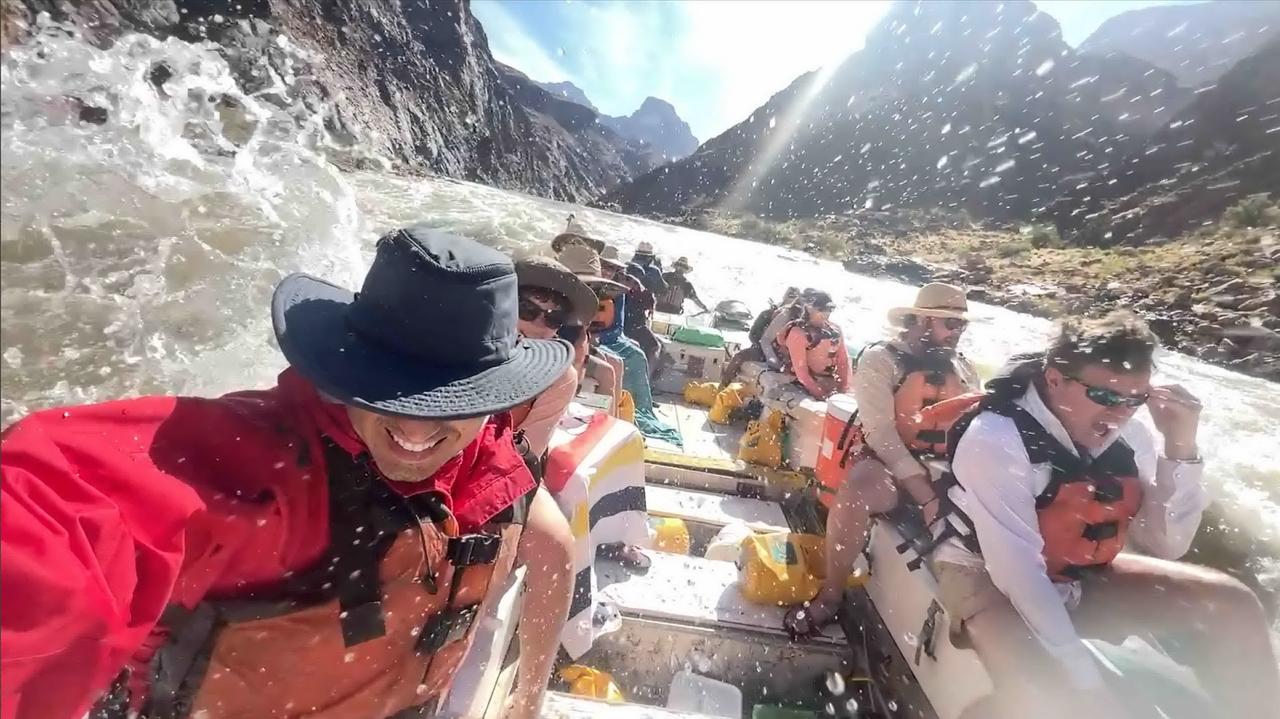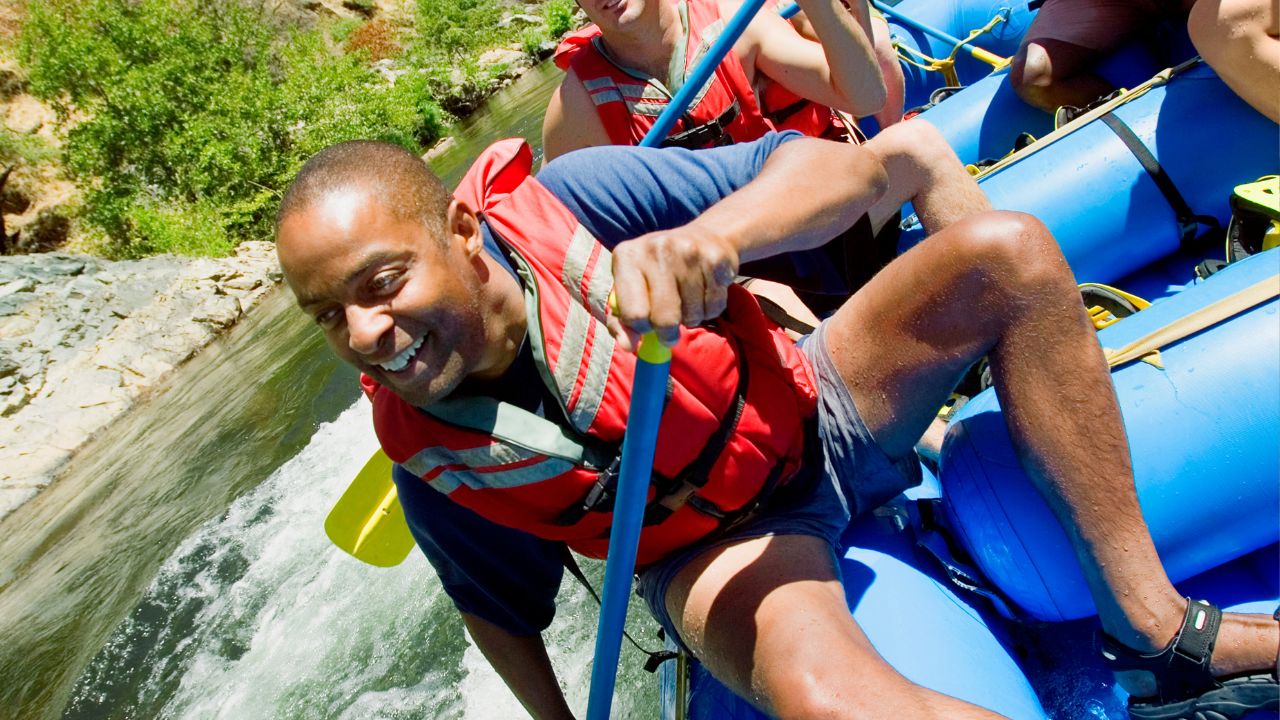Whitewater rafting has become increasingly popular in recent times. You will likely like the sense of fun and adventure it brings and the chance to spend time doing something outside your regular routine. Rafting trips have their challenges, though.
Many routes require physical exertion, and some rapids can be tough to navigate if you're not physically fit. Others experience anxiety and depression while on their trips. If you have ever suffered these symptoms, what could be causing them, and how can you cope with them in a way that allows you to enjoy your trip?
What Could Cause Anxiety and Depression During Whitewater Rafting?
Anxiety and depression are not the same, but they have similarities. Both conditions linger in an individual for an extended period, and both can impair the judgment of rafters, leading to reduced awareness that can cause serious accidents. What are some typical causes of anxiety and depression during whitewater rafting trips:
Physical Overexertion
Exercise generally positively affects mental health and general well being, but those benefits could be wiped out if you overdo it. A Sports Health Study conducted in 2012 revealed that people who overexert themselves physically soon record high levels of tension, fatigue, and depression. Whitewater rafting is a physically exerting activity. If you're manifesting signs of depression, it might be a sign that you are physically exhausted and may need rest.
Dangerous Whitewater Rafting Routes and Rapids
Whitewater rafting trips can get exciting because of the abundance and diversity of rapids you will encounter throughout the trip. Sometimes, however, this excitement can be too much for some people. It's possible that having to deal with frightening rapids could make you anxious and this could happen if you elect to raft high-class rapids when you're not physically fit for it.
Preexisting Mental Disorders
Some people have psychological issues that could predispose them to anxiety during whitewater rafting trips. For example, some might have aquaphobia, which causes intense anxiety and panic at the thought of water. Without treatment, those people with such conditions will have a hard time during a rafting trip which is usually a wet activity.
How to Cope with Anxiety and Depression During Whitewater Rafting Trips

Fortunately, there is a solution to the possible depression and anxiety during rafting trips; you also don't have to avoid them altogether. If you're feeling anxious and depressed while rafting, here are some tips that could help you cope:
- Acquire as Much Knowledge as Possible
When it comes to whitewater rafting trips, the more knowledge you have, the less anxiety you'll feel. So, before your trip, ensure you do your research. Find out the routes, types of rapids to expect, what boat will you use, clothing and safety guidelines, and the type of guide you'll have.
As you find out this information and prepare for it, your feelings about rafting might change and you may feel more confident and less anxious about the trip. One reason is that more information is bound to squash some fearful myths about rafting and allow you to set more realistic expectations. It will also help make you better mentally prepared for your trip.
- Try to Soak in the Experience
There are often many negative reports about whitewater rafting, and the prospect of bouncing off the river running on rocks could be scary to many. In a true sense, however, is hardly as frightening as your imagination. Rafting trips are exciting, and hardly anything beats the adrenaline rush of those trips. So, take some moments to soak in the rafting experience.
Take deep breaths, feel the sun's heat on your skin, experience the wetness of the splashing water, sniff in the moist air, and soak in the serene environment. Channel your mind to the more positive aspects of the trip. Once you're busy enjoying the experience, you'll hardly feel depressed or anxious.
- Register Under the Best Rafting Companies
Another thing that could quell rafting anxiety is knowing that you're in good hands. Reputable rafting companies employ the well-trained and experienced rafting guides you have been on trips with and know the safest ways to navigate rafting routes. All you need to do is pay attention carefully to their safety instructions and follow their lead. Knowing you're in safe hands can reduce your anxiety or depression.
- Create an Emergency Plan
If you're more concerned about the possible dangers and risks of whitewater rafting, you can research how to react in an emergency. Many people react differently to danger; some may be concerned they will freeze or make a crucial error regarding crunch time. Knowing that you have an emergency plan will serve as a form of comfort and will help you manage your anxiety.
Mental Health Benefits of Whitewater Rafting

Given how much anxiety people tend to feel during rafting trips, you might be tempted to put calling off your trip into consideration. The truth is it is, whitewater rafting involves exercise and spending lots of time in nature, which could positively impact your mental health. Here are some ways you can mentally benefit from whitewater rafting trips:
- It Alleviates Post Traumatic Stress Disorder Symptoms
White water rafting is an exciting experience, but it is also surprisingly beneficial for trauma victims. Study Cohorts followed a group of people displaying symptoms of PTSD on a rafting trip and were pleasantly surprised to recognize some positive impacts.
After a white-water rafting trip, they reported a 29 percent decrease in PTSD symptoms and a 21 percent decrease in general stress among participants. Similar studies have shown positive results among war veterans coping with PTSD as well.
- It Increases Mindfulness
Spending time in the great outdoors can reduce negative emotions, which would have been otherwise nearly impossible with the constant distraction of normal life. Spending time paddling among bubbling rapids and soaking in the majesty of nature can reduce the cortisol (stress) hormones and help you stay focused in the moment and relax in your body and mind. It could also help you alter your behavior and perspective of life.
- It Gives a Good Dose of Vitamin D
You may spend little time outdoors between work and other commitments in your routine. This could lead to conditions such as seasonal depression caused by low levels of vitamin D. Spending more time outdoors, such as during a white-water rafting trip, can solve some of those issues. Vitamin D, usually from the sun, is known to reduce depression and increase energy levels rapidly.
- Perceived Psychosocial Benefits
Rafting is usually done in a team headed by an experienced team guide. Some who conclude a rafting trip often find that they tend to bond with those they raft with. A study published on PubMed shows that participants in rafting trips often experienced perceived psychological benefits such as perceived relaxation, kinship, or a sense of achievement. They may also feel confident after such trips.
Conclusion
White water rafting can be a very exciting experience, but it can sometimes come with some fear and depression as you consider the obstacles. Acquiring as much knowledge as possible, hiring a reputable rafting company, and creating an emergency plan can help you cope with your anxious feelings and depression. If you follow some of these tips, you can enjoy the many benefits of whitewater rafting.







